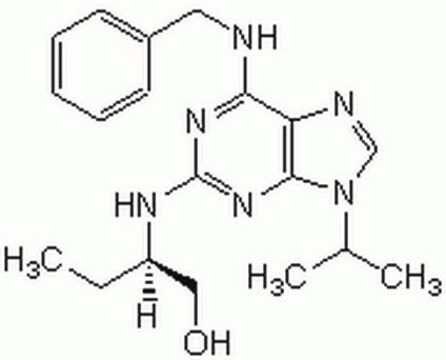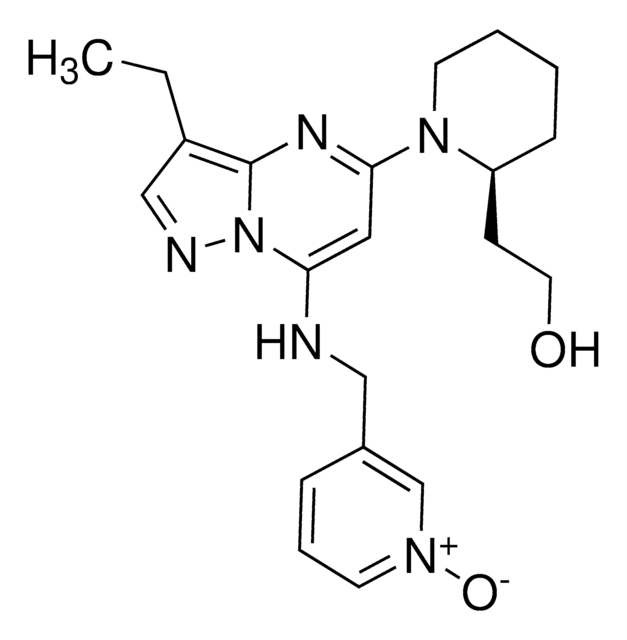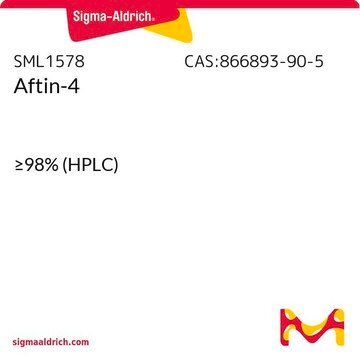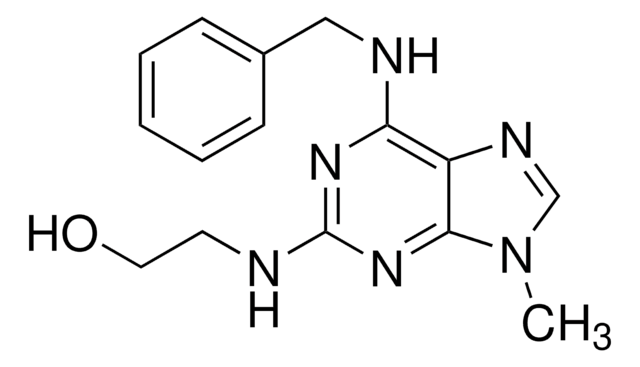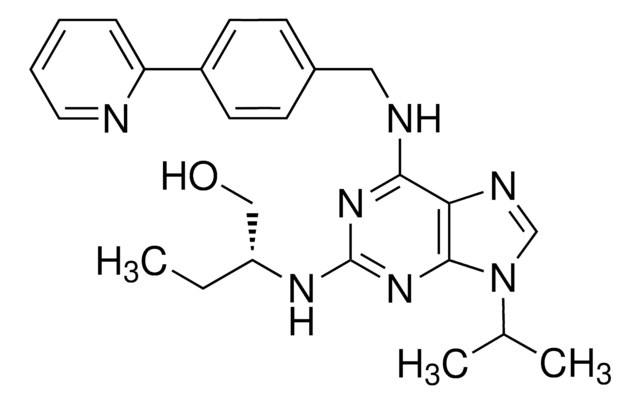557360
Roscovitine
≥95% (HPLC), solid, Cdk inhibitor, Calbiochem®
Synonyme(s) :
Roscovitine, 2-(R)-(1-Ethyl-2-hydroxyethylamino)-6-benzylamino-9-isopropylpurine, Cdk7 Inhibitor I
About This Item
Produits recommandés
product name
Roscovitine, A potent, reversible, and selective inhibitor of Cdks that exhibits about 10-fold greater efficacy towards p34-cdk1 and p33-cdk2 and 20-fold greater efficacy towards p33-cdk5 relative to Olomoucine.
Niveau de qualité
Pureté
≥95% (HPLC)
Forme
solid
Fabricant/nom de marque
Calbiochem®
Conditions de stockage
OK to freeze
Couleur
white to off-white
Solubilité
DMSO: 10 mg/mL
Conditions d'expédition
ambient
Température de stockage
−20°C
InChI
1S/C19H26N6O/c1-4-15(11-26)22-19-23-17(20-10-14-8-6-5-7-9-14)16-18(24-19)25(12-21-16)13(2)3/h5-9,12-13,15,26H,4,10-11H2,1-3H3,(H2,20,22,23,24)/t15-/m1/s1
Clé InChI
BTIHMVBBUGXLCJ-OAHLLOKOSA-N
Description générale
Actions biochimiques/physiologiques
p34cdk1/cyclin B
Avertissement
Reconstitution
Autres remarques
Meijer, L., et al. 1997. Eur. J. Biochem.243, 527.
Meijer, L., et al. 1996. Trends Cell Biol. 6, 393.
Rudolph, B., et al. 1996. EMBO J. 15, 3053.
Informations légales
Code de la classe de stockage
11 - Combustible Solids
Classe de danger pour l'eau (WGK)
WGK 3
Point d'éclair (°F)
Not applicable
Point d'éclair (°C)
Not applicable
Certificats d'analyse (COA)
Recherchez un Certificats d'analyse (COA) en saisissant le numéro de lot du produit. Les numéros de lot figurent sur l'étiquette du produit après les mots "Lot" ou "Batch".
Déjà en possession de ce produit ?
Retrouvez la documentation relative aux produits que vous avez récemment achetés dans la Bibliothèque de documents.
Notre équipe de scientifiques dispose d'une expérience dans tous les secteurs de la recherche, notamment en sciences de la vie, science des matériaux, synthèse chimique, chromatographie, analyse et dans de nombreux autres domaines..
Contacter notre Service technique
